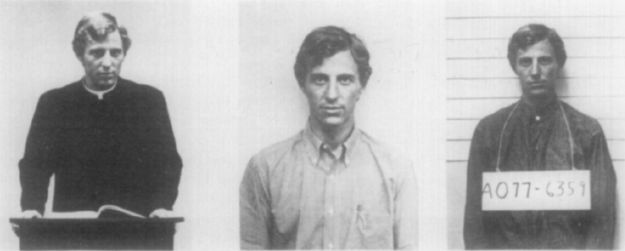An epidemic has made tragic reminders even more tragic, and love is multiplied.
Editor’s note: This article comes from the WeChat public account management psychology and behavior “(ID: Psychology-Zhang) , author: ZHANG Xin, professor of Antai College of economics & management, Shanghai Jiaotong University, Antai EMBA course teaches; published with permission.
“An epidemic has made grief reminders more tragic, and love is multiplied by love.”
Xi’an “China Business Daily” reported that as the epidemic gradually stabilized, Xi’an resumed marriage registration from March 2 onwards, but it was ushered in by people who lined up for divorce. Divorce appointments at multiple marriage registries It was so full that it could not be processed until after March 18, which was really surprising.

Why did the new coronavirus specifically infect the lungs hurt so many people’s hearts?
01
The epidemic affects family operations in many ways. An important change is the time that couples get along.
The pace of life in big cities is fast. Couples and husbands are usually working people. Although they sleep together every night, the actual time they get along is very limited.
In order to get more sleep and not to be late for work, few couples share breakfast at home. In the short washing time after getting up, the words are very limited, and they are usually things that have to be said. Who should pick up the child or something today, in a few words, concise and concise.

In the daytime, they are busy working in their work units, returning home from work, and having a hurry to eat dinner. After that, there is still a lot of things to do. They can either tutor children or do their own work. When it’s time to yawn and go to bed, how can he or she just be free?
This can still go home normally. If you are fortunate to work in Ali, please ask Mr. Ma to help you repair the blessing. The 996 will become the norm. It is common to not go home for a week.
Marriage in big cities, for many people, is really just sleeping together at night.
02
This month and year later, for many people, whether they work remotely or lose their jobs, they do n’t have to go to the company anytime during the day.
Not only the company, but actually ca n’t go anywhere, just stay home.
The virus helped you fulfill your pre-marriage vows, allowing you and him (her) to stay together every day, and you may meet more times a day than last month.
Isn’t it a good thing?
03
According to the experiments of psychologists Daniel Perlman and Stuart Oskamp, frequent meeting is not necessarily a good thing, the key depends on whom.
They prepared three different photos of the same person, as shown below, from left to right. The person in the photo is the professor on the podium, the employee in the company, and the criminal before jail. Different types of characters, namely positive (professor), neutral (staff), and negative (criminal).

Sorry, this research was completed fifty years ago, when the professor was indeed a positive image.
Then recruited a group of college students interested in scientific research in order to get paid, and randomly divided them into 4 groups, so that each college student was equally likely to be divided into each group, so that 4 indifferent groups were obtained.
The concepts of random and indifference groups are relatively abstract, which means that the four groups of college students will be the same.
Because different groups are randomly grouped, there is no difference, they should evaluate the same photo the same.
For the same photo, the psychologist allows each group of college students to evaluate the people in the photo from 12 aspects, including ugly, lazy, dirty, fussy, narrow-minded, successful, flattering, kind, strong, Have ideals, pragmatism, and tolerance (these are frequent words used by couples to evaluate each other) to get the first impression of the person in the photo.
Then, psychologists asked different groups of college students to watch the same photo in different passes: the first group to watch 0 times (no more), the second group to watch again, and the third group to watch 5 times , The fourth group to watch 10 times, each time for 3 seconds. Then let them evaluate the person in the photo again from the same 12 aspects.
The changes in the two evaluation scores are as follows.

Note that the upper line is for professors, the middle line is for staff, and the lower line is for criminals.
The law is straightforward:
If you initially feel that this person is a positive image (professor on the podium), the more you see it repeatedly, the more positive the evaluation will be;
If you initially feel a neutral image (employee in the company), the more you see it repeatedly, the evaluation will gradually become positive;
However, if you initially feel a negative image (the criminal before jail), the more you see it repeatedly, the more negative the evaluation will be;
Repeatedly seeing the impact of the evaluation depends on how good you feel at first.
04
During the epidemic, the impact of frequent meetings between husband and wife on mutual evaluation also depends on the feeling state before the epidemic.
If you have seen the other party disgusting before the epidemic, you can hide and hide. Frequent contact during the epidemic will polarize this negative evaluation until the outbreak and collapse, and you will only divorce when you wait for the civil administration to open the door.
If it was like glue before the epidemic, all day and night, the frequent contact during the epidemic will also polarize this positive evaluation and make them more affectionate.
It ’s understandable when you think about it. It does n’t look good at the beginning. You work hard for him to cook for him every day, and he will only see you in a disheveled manner in his eyes, thinking that you are a cook, and it is not good to cook, so much, do not talk about hygiene, dirty the kitchen. If you are very affectionate at the beginning, he sees you cooking every day and thinks of the snail girl, who will be grateful and appreciate it.

Who ever thought that an epidemic would make grief reminders more tragic, and love doubles love?
The loving ones don’t need to go to the Civil Affairs Bureau to re-acquire their certificates. What people see is that only the sad ones are queuing up for divorce.
Source: Perlman, D., & Oskamp, S. (1971). The effects of picture content and exposure frequency on evaluations of Negroes and whites. Journal of Experimental Social Psychology, 7, 503-514.